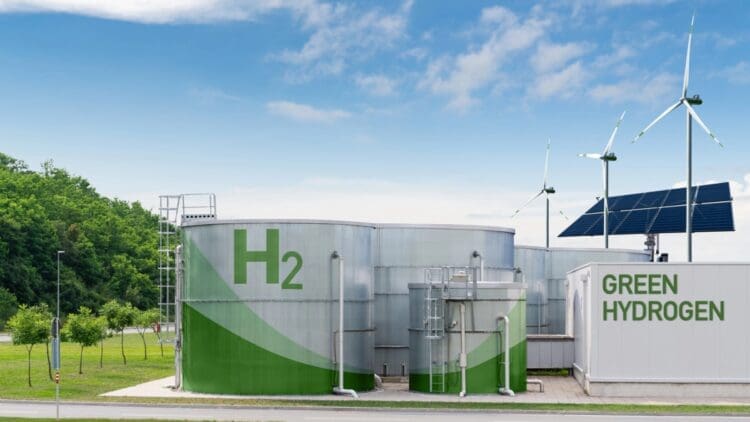As the world begins to embrace the potential of the hydrogen sector, it has now emerged that Dutch renewable energy company VoltH2 has secured the necessary permit for a 20 MW hydrogen electrolyzer project in Germany’s Gelsenkirchen region. The world has slowly begun to embrace the underdeveloped hydrogen sector as a potential replacement for the conventional oil and gas sectors, as it aims to transition away from fossil fuels. Hydrogen is the most abundant element in the universe and is quietly overtaking the rest of the renewable energy sector as the energy resource for the future.
VoltH2 has officially received the required permits from the German government to begin operations
In a world awash with innovative energy production methods, hydrogen remains the cornerstone of the renewable energy market. For far too long, the nations of the world have stagnated in the adoption of the hydrogen sector, citing a lack of significant investments and regulatory hurdles as the main issues.
VoltH2 has a reputation as one of the world’s leading green hydrogen development companies, and recently received the required permits from the regional German government to construct and operate a 20 MW electrolysis plant at the Klimahafen in Gelsenkirchen.
The 25,000-square-meter site is located in the Klimahafen, which is the home of several large industrial companies. VoltH2 was recently presented with the BImSchG permit from Karin Welge, the mayor of Gelsenkirchen, who made a statement that outlines the importance of embracing the hydrogen sector in Germany.
“Climate change requires an accelerated conversion of our energy supply – away from fossil fuels and toward green energy. For many industrial sectors, hydrogen is the key technology for this. To preserve and expand our industrial jobs, we are therefore together driving the change. I am therefore very pleased that today I can hand over the permit for an electrolysis plant at the Klimahafen in Gelsenkirchen and that we will be able to use hydrogen produced in Gelsenkirchen in the future.” – Karin Welge, the mayor of Gelsenkirchen
The facility will serve the litany of nations turning to the hydrogen sector over the next few years
The aforementioned need to diversify the energy sector is not lost on the German government. Nearly every nation on Earth has some sort of plan or scheme to integrate the renewable energy sector into its respective energy grids.
“Thanks to the close cooperation with the city of Gelsenkirchen, Gelsenlog, and DMT Energy Engineers/ENCOS, we can now effectively further develop this plant. The permit is an important milestone on the way to the final investment decision (FID) for the plant.” – Arno Luisman, CEO of VoltH2
The site in Gelsenkirchen will feature innovative solutions that have hampered the adoption of hydrogen into the grid. It will include space for a hydrogen filling station, which will enable transport companies in the region to switch to hydrogen without having to set up their own logistics. Additionally, it will also feature a tube trailer filling station for customers who are not directly connected to the project.
Even nations that have historically relied on the conventional oil and gas sector have plans to build massive green hydrogen facilities. The PEM electrolysis plant in Klimahafen in Gelsenkirchen will be capable of producing about 1,800 tons of green hydrogen a year.
Hydrogen is set to become the go-to energy resource for the future
The news that VoltH2 has received the required permits from the German government to begin construction of the hydrogen facility is a welcome change from the historic reliance on the conventional oil and gas sector. Even a nation not known for energy production, like Uzbekistan, is turning to hydrogen as the most pragmatic energy resource available. By providing the necessary permits, Germany could potentially become a regional leader in the hydrogen sector once the site is operational.






